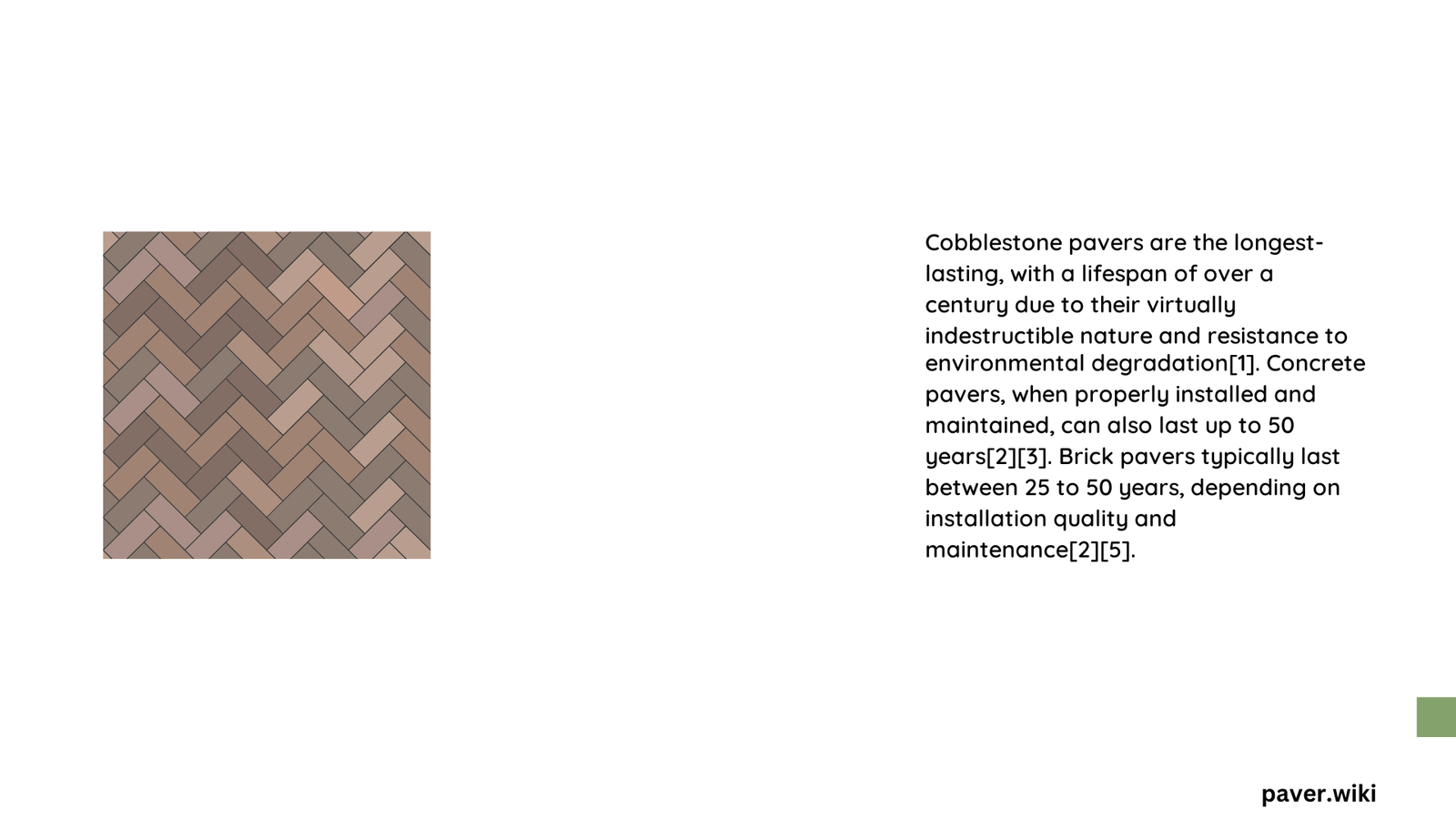When selecting pavers for your outdoor spaces, understanding their longevity is crucial. Natural stone and high-quality concrete pavers stand out as the most durable options, with potential lifespans ranging from 25 to over 50 years when properly installed and maintained. Factors like material composition, climate exposure, and maintenance practices significantly influence how long your pavers will remain structurally sound and aesthetically pleasing.
What Makes Pavers Last Longer?
How Do Material Compositions Impact Durability?
Different paver materials offer varying levels of longevity:
| Paver Type | Average Lifespan | Durability Factors |
|---|---|---|
| Natural Stone | 50-100 years | Highest resistance to weathering |
| Concrete Pavers | 25-50 years | Moderate resistance, requires maintenance |
| Brick Pavers | 25-40 years | Good color retention, moderate durability |
Granite Pavers: The Durability Champion
Granite pavers represent the pinnacle of long-lasting outdoor flooring. Their exceptional characteristics include:
- Compressive strength exceeding 20,000 psi
- Minimal porosity
- Resistance to:
- Extreme temperature fluctuations
- Heavy foot traffic
- Chemical degradation
- UV radiation
What Installation Techniques Extend Paver Lifespan?
Proper installation dramatically influences paver longevity. Critical factors include:
- Proper Base Preparation
- Minimum 4-6 inches of compacted gravel
- Precise leveling
-
Adequate drainage infrastructure
-
Joint Sand Management
- Regular replacement
- Use of polymeric sand
-
Prevention of weed growth
-
Professional Installation
- Experienced hardscaping professionals
- Precise edge restraint techniques
- Correct slope for water runoff
How Do Climate Conditions Affect Paver Durability?
Climate plays a significant role in paver performance:
- Cold Regions: Prioritize frost-resistant materials like granite or dense concrete
- Hot Climates: Choose light-colored pavers to minimize heat absorption
- Coastal Areas: Select salt-resistant materials with low porosity
What Maintenance Practices Maximize Paver Longevity?
Regular maintenance can extend paver life by decades:
- Annual cleaning with appropriate pressure and detergents
- Resealing every 3-5 years
- Prompt repair of minor damages
- Preventing weed and moss growth
- Avoiding harsh chemical treatments
Cost-Effectiveness of Long-Lasting Pavers

While initial investment might be higher for premium materials like granite, the long-term benefits are substantial:
- Reduced replacement costs
- Minimal maintenance expenses
- Enhanced property value
- Aesthetic consistency over decades
Recommended Paver Selection Strategy
- Assess local climate conditions
- Evaluate traffic intensity
- Consider budget constraints
- Consult professional hardscaping experts
- Prioritize quality installation
Final Recommendations
For maximum durability, choose:
– Granite pavers for extreme conditions
– High-density concrete pavers for balanced performance
– Professional installation with proper maintenance plan
Pro Tip: Always request material warranties and understand their specific coverage terms.
